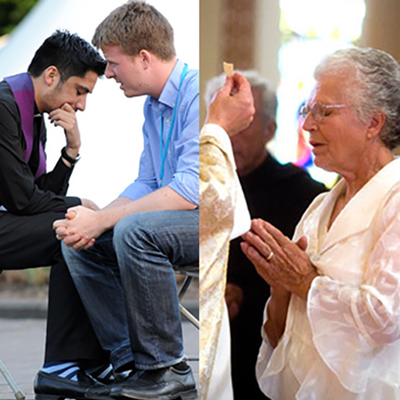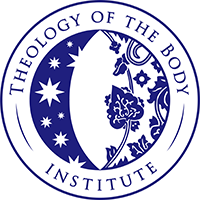

Three New Year’s Resolutions Every Catholic Should Make
Three New Year’s Resolutions Every Catholic Should Make

In his Theology of the Body, Saint John Paul II spoke of three “infallible and indispensable” means for living out an authentic Christian spirituality (he was speaking specifically of the spirituality of married life, but it applies to one and all): a deepening life of prayer; regular confession of our sins; and frequent reception of the Eucharist.
At first, this might just sound like “standard Catholic stuff” that you’ve heard before. Sure enough, it is. But John Paul II’s “spousal theology” gives us a fresh, mystical perspective that (sadly) you probably didn’t hear growing up in the Church. It’s to this fresh perspective that every Catholic should commit (or recommit) himself in the new year.
1) Prayer. The Fathers of the Church tell us that prayer is nothing but becoming a longing for God. If we have the courage to follow it the whole way through, this longing, says Saint John Paul II, will take us through “painful purifications (the ‘dark night’). But it leads, in various possible ways, to the ineffable joy experienced by the mystics as ‘nuptial union’” (Novo Millennio Inuente 33). Prayer, therefore, in a nutshell, means getting in touch with our deepest, most real, most honest desires for love and union and opening them up to the one who alone can satisfy them.
2) Regular Confession. Whenever we commit serious sin, we should be going to Confession. That may mean quite frequently for lots of us. But this does not mean we should not also be going regularly if we haven’t done anything “big, bad and horrible.” As the Catechism says, “Without being strictly necessary, confession of everyday faults (venial sins) is nevertheless strongly recommended by the Church. Indeed, the regular confession of our venial sins helps us form our consciences, fight against evil tendencies, let ourselves be healed by Christ and progress in the life of the Spirit” (CCC 1458). If we’re taking our journey seriously, we should be going to Confession at least once a month. Prayerful reception of this sacrament is where we “let our masks fall and turn our hearts back to the Lord who loves us, so as to hand ourselves over to him as an offering to be purified and transformed” (CCC 2711). In other words, Confession is where we “get naked” before God allowing Christ to wash his Bride (see Eph 5:27) so as to prepare her for “nuptial union” – the Eucharist.
3) Frequent Reception of the Eucharist. The Eucharist, wrote Saint John Paul II, is “the sacrament of the Bridegroom and of the Bride.” Christ instituted the Eucharist, he continued, “to express the relationship between man and woman, between what is ‘feminine’ and what is ‘masculine’” (Mulieris Dignitatem 26). What wealth of truth is contained in these statements! In the Eucharist, Christ the Bridegroom gives up his body for his Bride and we, the Bride, receive his body into our bodies. In short, if prayer is getting in touch with our desire for “nuptial union” and Confession is “getting naked” before God, the Eucharist is the consummation of the marriage!
So let’s recommit ourselves to these three infallible and indispensable means for becoming the men and women we are created to be. They’re infallible because, when they are properly understood and lived, they can’t possibly steer us wrong, and they’re indispensable because we simply can’t live the Christian life to the full without them.
Question: What new insight did you learn about prayer, Confession or the Eucharist through this post?
Images: (Prayer) Ben White, Unsplash.com; (Confession and Eucharist) Wikimedia Commons.



